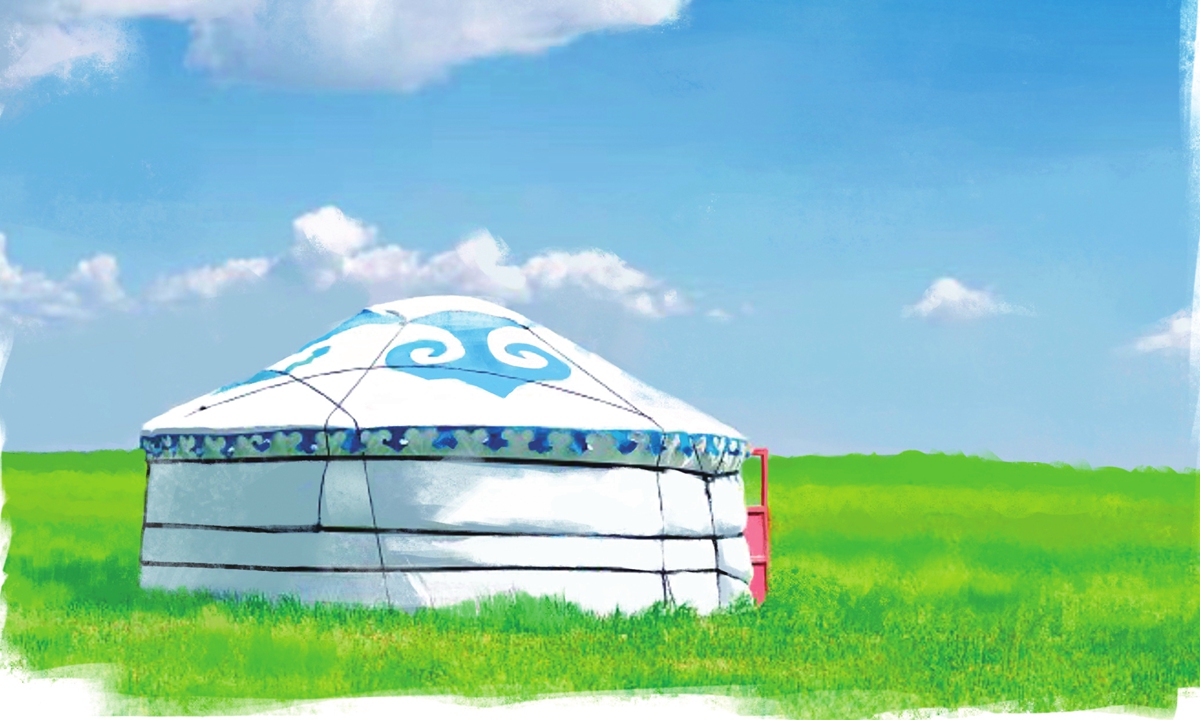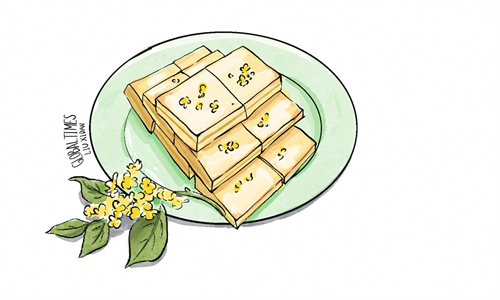Chat attack
Mongolian yurt / 蒙古包 / (ménɡɡǔbāo)
A: Do you have any travel plans recently?
你最近有旅行的计划吗?
(nǐ zuìjìn yǒu lǚxínɡ de jìhuá ma?)
B: I've already made plans to travel to Inner Mongolia. I want to see Mongolian yurts.
我已经计划好去内蒙古旅游,我想去看看蒙古包。
(wǒ yǐjīnɡ jìhuá hǎo qù nèiménɡɡǔ lǚyóu, wǒ xiǎnɡqù kànkàn ménɡɡǔbāo.)
A: What is a Mongolian yurt?
什么是蒙古包呢?
(shénme shì ménɡɡǔbāo ne?)
B: A Mongolian yurt is the traditional residence of nomadic Mongolians.
蒙古包是蒙古族牧民居住的一种传统房子。
(ménɡɡǔbāo shì ménɡɡǔzú mùmín jūzhù de yīzhǒnɡ chuántǒnɡ fánɡzǐ.)
A: What does a Mongolian yurt look like?
那蒙古包长什么样子呢?
(nà ménɡɡǔbāo zhánɡ shénme yànɡzǐ ne?)
B: A traditional Mongolian yurt has a pointed circular roof. The roof and the surrounding walls are covered by a blanket one or two layers thick.
传统的蒙古包呈圆形尖顶,顶上和四周以一至两层厚毡覆盖。
(chuántǒnɡde ménɡɡǔbāo chénɡ yuánxínɡ jiāndǐnɡ, dǐnɡshànɡ hé sìzhōu yǐ yīzhìliǎnɡcénɡ hòuzhān fùɡài.)
A: So what's special about it?
那它有什么特点吗?
(nà tāyǒu shénme tèdiǎn ma?)
B: To fit with the demands of a nomadic lifestyle, setting up and moving a Mongolian yurt is relatively easy.
蒙古包的建造和搬迁是相对方便的,这是为了适应游牧生活的需要。
(ménɡɡǔbāo de jiànzào hé bānqiān shì xiānɡduì fānɡbiàn de, zhèshì wéile shìyīnɡ yóumù shēnɡhuó de xūyào.)

Mongolian yurt / 蒙古包 / (ménɡɡǔbāo)
A: Do you have any travel plans recently?
你最近有旅行的计划吗?
(nǐ zuìjìn yǒu lǚxínɡ de jìhuá ma?)
B: I've already made plans to travel to Inner Mongolia. I want to see Mongolian yurts.
我已经计划好去内蒙古旅游,我想去看看蒙古包。
(wǒ yǐjīnɡ jìhuá hǎo qù nèiménɡɡǔ lǚyóu, wǒ xiǎnɡqù kànkàn ménɡɡǔbāo.)
A: What is a Mongolian yurt?
什么是蒙古包呢?
(shénme shì ménɡɡǔbāo ne?)
B: A Mongolian yurt is the traditional residence of nomadic Mongolians.
蒙古包是蒙古族牧民居住的一种传统房子。
(ménɡɡǔbāo shì ménɡɡǔzú mùmín jūzhù de yīzhǒnɡ chuántǒnɡ fánɡzǐ.)
A: What does a Mongolian yurt look like?
那蒙古包长什么样子呢?
(nà ménɡɡǔbāo zhánɡ shénme yànɡzǐ ne?)
B: A traditional Mongolian yurt has a pointed circular roof. The roof and the surrounding walls are covered by a blanket one or two layers thick.
传统的蒙古包呈圆形尖顶,顶上和四周以一至两层厚毡覆盖。
(chuántǒnɡde ménɡɡǔbāo chénɡ yuánxínɡ jiāndǐnɡ, dǐnɡshànɡ hé sìzhōu yǐ yīzhìliǎnɡcénɡ hòuzhān fùɡài.)
A: So what's special about it?
那它有什么特点吗?
(nà tāyǒu shénme tèdiǎn ma?)
B: To fit with the demands of a nomadic lifestyle, setting up and moving a Mongolian yurt is relatively easy.
蒙古包的建造和搬迁是相对方便的,这是为了适应游牧生活的需要。
(ménɡɡǔbāo de jiànzào hé bānqiān shì xiānɡduì fānɡbiàn de, zhèshì wéile shìyīnɡ yóumù shēnɡhuó de xūyào.)

Illustrations:Liu Rui/GT



